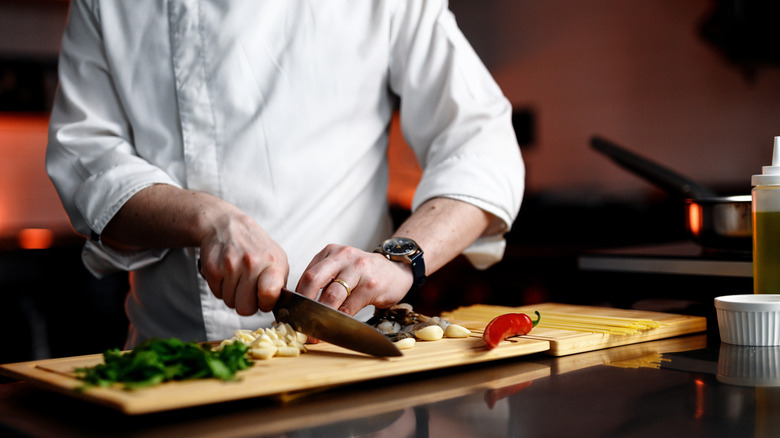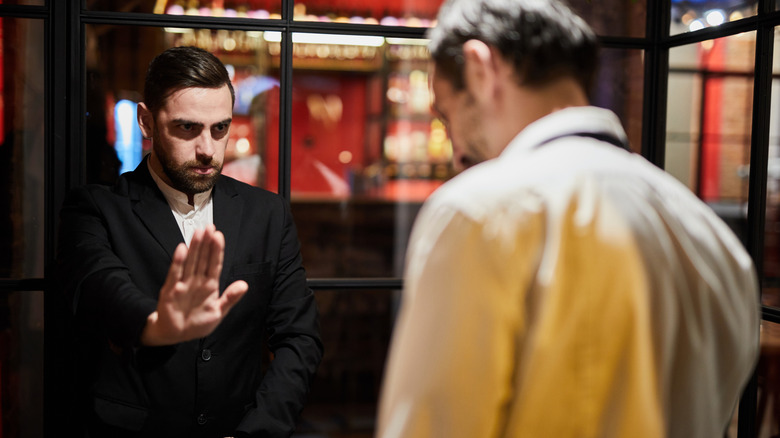What Does It Mean When A Chef '86's A Menu Item?
As anyone who has ever worked in the service industry before (or anyone generally fluent in cool-guy lingo) knows, "'86'ed" is a term for doing away with something. Back-of-house line cooks might shout "'86 the special" at the person working the expo counter, indicating that a key ingredient necessary for making the dish has officially run out. At this point, expo would communicate to the front-of-house servers that the special has been '86'ed" so they know not to offer it to guests when seating them. But, where did the number 86 come from in the first place?
The first written explanation of the term, according to Merriam-Webster, appears in the 1933 "glossary of soda-fountain lingo," a column printed in the New Jersey Courier-Post by news writer Walter Winchell. It was also noted that 1930s American soda counter culture employed "eighty-six" as a rhyme for "nix," not unlike the tradition of cockney rhyming slang (i.e. "brass tacks" means "facts" and "me old China plate" means "my good mate").
Today, the term 86'ed remains intrinsically linked to the service industry, but the colloquial use of the campy soda-jerk slang has expanded far beyond the realm of the lunch counter. '86ing refers to refusing to serve a specific customer at least as often as to refer to a sold-out menu item. Beyond the walls of a professional kitchen, you can '86 an old habit, '86 a deadbeat boyfriend, or '86 a pile of unworn clothes from your closet.
To 86 is to get rid of, whether food or customers
Various other origin stories for the term have cropped up over the years. One alternate theory links the number 86 specifically to the bar scene. Before the 1980s, whiskey was available at 100-proof or 86-proof (80-proof is now customary for standard liquor). When a patron became visibly drunk, the bartender would "86 them" by switching them to the weaker stuff until they left. Today, folks can be '86'ed from the bar for the night if they've had too much to drink and need to be cut off altogether (i.e. one bartender might tell the other bartender to "'86 the guy in the red shirt"). Most dives also have an unofficial "86 list" of famously rowdy patrons who have been permanently banned from the bar.
Yet another more folkloric theory proposes that this restaurant lingo originated in one specific establishment: Chumley's bar at 86 Bedford Street in New York City. During Prohibition, when Chumley's was peddling booze outside the eyes of the law, the joint (like many speakeasies of the era) paid off law enforcement in exchange for warning calls before a police raid was about to happen. Per the lore, the code word that approaching officers would use when calling Chumley's was "'86 your customers," meaning to send them out the back door at 86 Bedford Street. While tipsy patrons hurriedly exited, the financially-compensated heat would enter via the front door on Pamela Court.

